In the quiet village of Dhadgaon in Nandurbar, Maharashtra, a transformative movement is taking root. ‘Aadiwasi Janjagruti’ — a grassroots initiative led by 50 passionate community members — is revolutionising how tribal communities connect with governance and the world. Through captivating videos, films, and documentaries, they are creating a hyperlocal communication network that empowers tribes to address everyday challenges and engage with the Government like never before.
How it all began
The story of Aadiwasi Janjagruti traces back to 2016, when Nitesh Bhardwaj (33), one of its founders, arrived in Dhadgaon for a fellowship programme. At the time, Nitesh was passionate about filmmaking but had no plans for long-term involvement in the village. His connection with the community began unexpectedly — through a group of eager high school students curious about video production.
With no equipment or resources, Nitesh started teaching the students how to shoot and edit videos using just his and a friend’s phones. Their first project was a simple, zero-budget video, but its impact was profound.
“We uploaded it on YouTube and got 20 subscribers — it felt huge for us! Since the villagers were part of the film, it was shared and shown widely,” Nitesh recalls in an interview with The Better India.
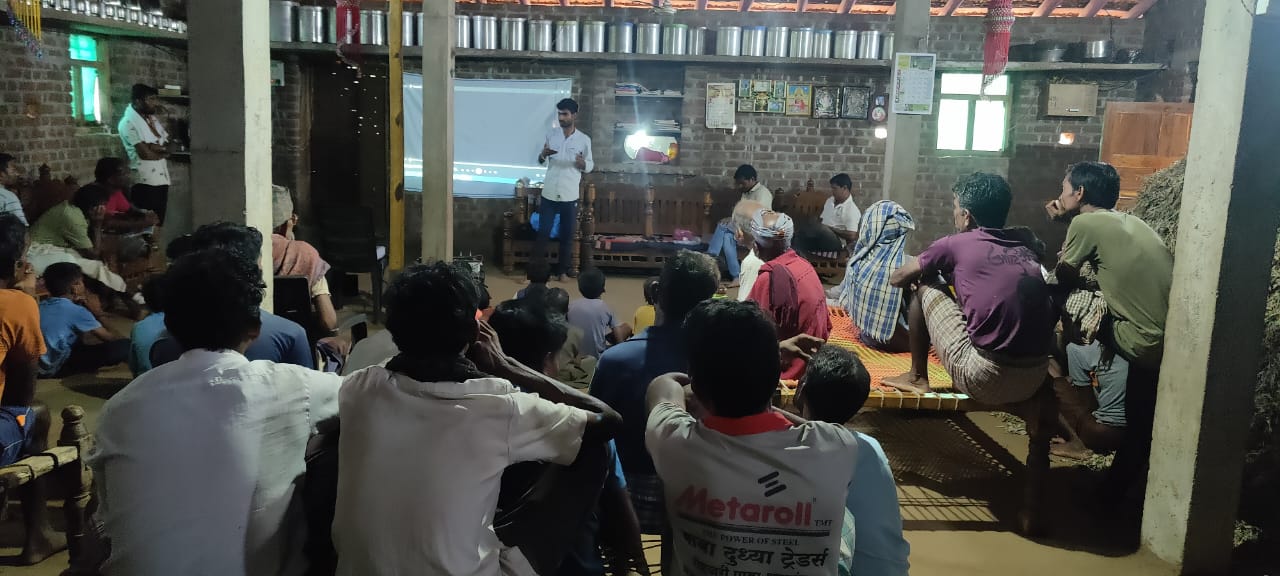
The response to their next video, which highlighted the issue of child labour, was a game-changer. Nitesh realised they had discovered a powerful tool for raising awareness and addressing social issues. “After that film, whenever we went to a tea stall, the owners would quickly hide any kids working there. They thought we were some big shots who might file a complaint,” Nitesh shares.
That modest beginning laid the foundation for a movement that would go on to empower tribal voices through storytelling and visual media.
Bridging the communication gap with videos
Nitesh was soon joined by Rakesh Pawara (38) and Arjun Pawara (37), two local community members from Dhadgaon who deeply understood the village’s challenges. Together, they began assembling a team of local reporters and workers, all united by a shared vision to create meaningful change in their community.
“We were already doing our part, performing skits and dramas on social issues,” shares Rakesh. “But when we started working with Nitesh Bhai, we realised how many things were happening unsystematically in our area.”
He recalls one example: “When people in our village went to get their ration cards, they were often charged a fee. We later found out that getting a ration card should be free. The person in charge was tricking them into paying, simply because they didn’t know any better.”
In the early days, as they were establishing their presence, a video by Aadiwasi Janjagruti on the Swachh Bharat Mission garnered significant attention. “The whole village was involved in making that film. Somehow, it reached the Collector’s office, and he invited us, asking if he could be a part of it too,” says Nitesh.
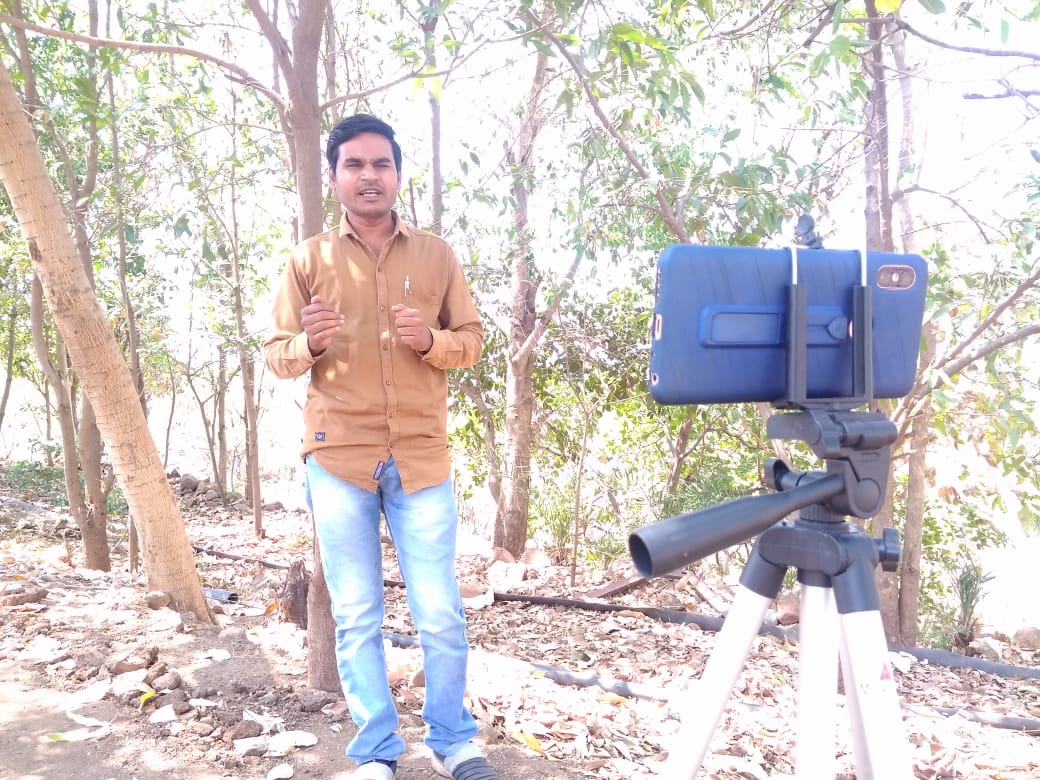
This led to an unexpected breakthrough: the villagers now had an open channel of communication with the Collector. “He gave us access to government offices and meetings where we could screen our film. He even gifted us a mobile projector, which we used to screen the movies in the villages,” Nitesh adds.
Savi Pawara (32) is an office volunteer at Aadiwasi Janjagruti, overseeing screenings and meetings in five villages within the block. A respected leader, especially among women, she is fondly known as Savi Tai and is also a talented Pawari actress.
Before each screening, Savi travels to the village two days in advance. She meets with local leaders — including the CBO and the Sarpanch — and speaks to other villagers to inform them about the meeting and screening schedule, and to gather suggestions for topics they want to discuss. “Once I return to the office, I share all the information with the team, so we can plan accordingly,” she explains.
Savi uses her influence to empower the women in her community, helping them raise their grievances. For those who feel too shy to speak up, she steps in on their behalf. “I support women who want to talk about the issues they’re facing — whether it’s abuse or violence — and I help them find their voice,” she further adds.
“We act as a bridge, taking these issues directly to the Government if need be,” says Nitesh. “A lot of these meetings happen in the afternoons, which allow women to attend as well. This ensures that women are not left out of the conversation.”
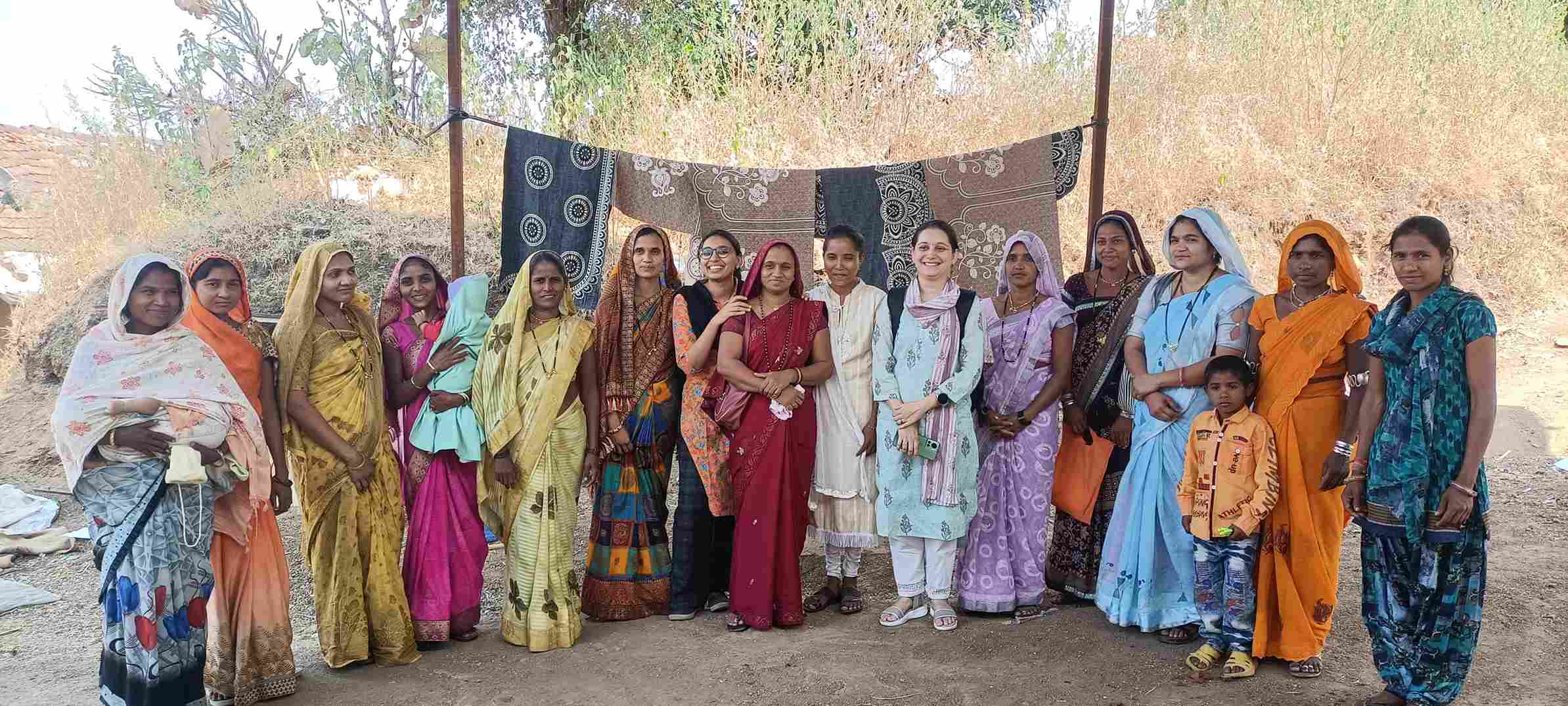
These screenings have become a major tool for educating the local population, giving them a better understanding of issues affecting their daily lives.
The team also ensures that the voices of the community are heard by government officials. After every screening, regular meetings are conducted where people can voice their concerns and share suggestions. These meetings tackle a variety of issues — including corruption, abuse, pension issues, and harmful superstition.
Even the children of these communities, who would’ve otherwise gotten involved in other activities, are mobilised to work for the betterment of their own homes.
Turning the marginalised into mainstream
Aadiwasi Janjagruti’s efforts have had a significant impact on the community. By translating government policies into the local dialect and using video formats to explain them, they are ensuring that the tribal population is not left out of important decisions that affect their lives.
During COVID, when hyperlocal information became crucial, Nitesh and his team worked tirelessly to ensure the community stayed informed. “I would take the WHO reports, translate them into Hindi, and then our team members would further translate them into our local dialect, Pawari. By the time the content was available in Marathi, we already had the information ready for our community,” says Nitesh.
Aadiwasi Janjagruti has successfully addressed several local issues, making a tangible difference in the community. One such case involved a woman whose nine goats died from poisoning. While the loss wasn’t considered significant enough by mainstream news outlets, it devastated her livelihood and affected the entire community.
Aadiwasi Janjagruti raised awareness about the issue, bringing it to the attention of local authorities, and the woman ultimately received compensation.
In another instance, the team worked relentlessly to highlight a road construction project that had been stalled for years. Their videos drew attention to the issue, and the road was finally completed in 2022. The villagers were so proud of the outcome that they decided to name the road after Aadiwasi Janjagruti.
In Dhadgaon, a bridge project had been stuck in limbo for 16 years, plagued by corruption and bureaucratic hurdles. Aadiwasi Janjagruti stepped in, creating a series of videos that brought attention to the issue and made it a pressing concern. Their efforts paid off when the Government sanctioned Rs 45-47 crore for the bridge’s completion.
While awaiting the bridge’s construction, the team petitioned for a free boat service to help villagers cross the river. “We made sure the community’s inconvenience was addressed in the meantime. Now, a free boat service runs three trips every day for the villagers until the bridge is completed,” shares Rakesh.
What is truly remarkable is that one of the team members who tirelessly advocated for the bridge went on to contest elections for the Sarpanch post — and won. Today, 14 members of Aadiwasi Janjagruti hold positions in government offices. With no political affiliations and no financial backing, these changemakers became part of the system because the community recognised their dedication and the impact of their work.
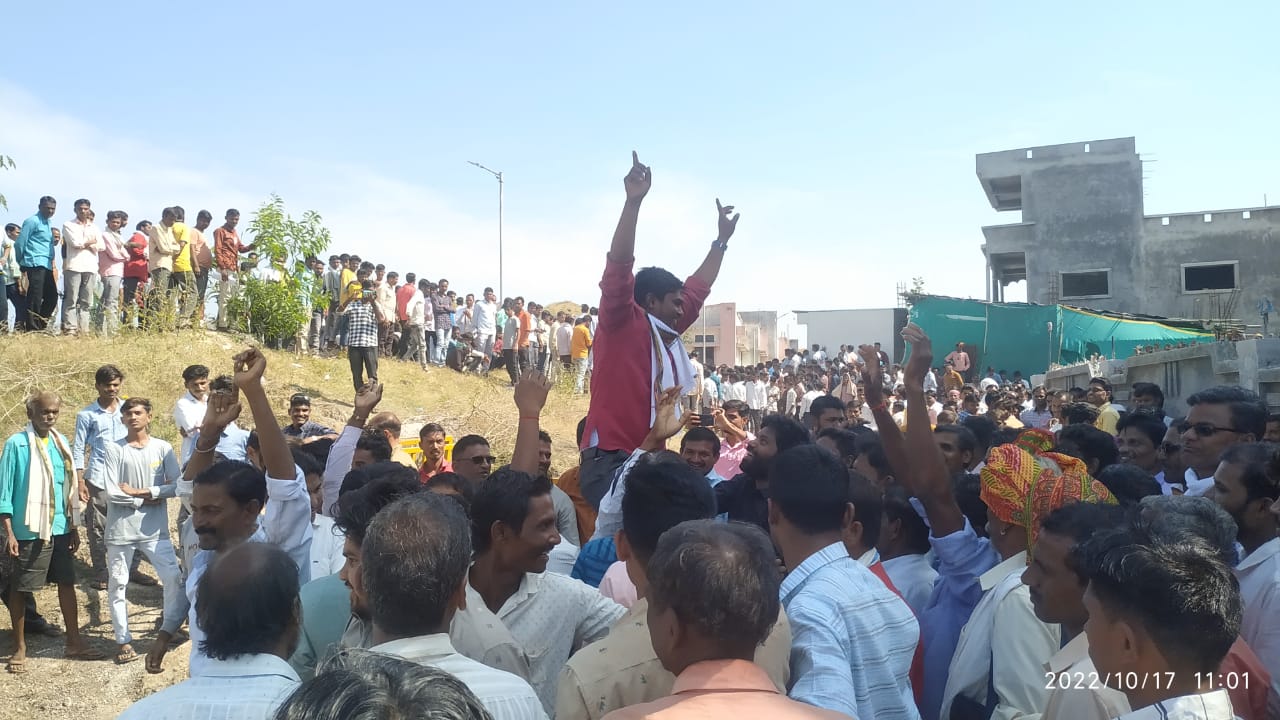
What began as a project focused on four to five villages has now expanded to cover over 170. Aadiwasi Janjagruti now has 47 workers, all from tribal communities, who have been trained as journalists, reporters, and leaders. The team produces a diverse range of content — films, skits, short films, and documentary-style videos — addressing critical issues like child labour, sanitation (Swachh Bharat), government policies, citizen rights, and corruption.
‘We just want to be Dhadgaon famous’
Aadiwasi Janjagruti’s work has not gone unnoticed. In 2022, their team received small grants from the Azim Premji Foundation, Google News Initiative, and YouTube India. This funding allowed them to expand their reach and improve their operations.
Despite the recognition, the team remains committed to their community. They don’t aspire to be famous on a national scale. “We don’t want to be world-famous, we just want to be ‘Dhadgaon famous’,” says Nitesh. “We want to tackle the issues here and make sure our team is strong enough to handle it all on their own.”
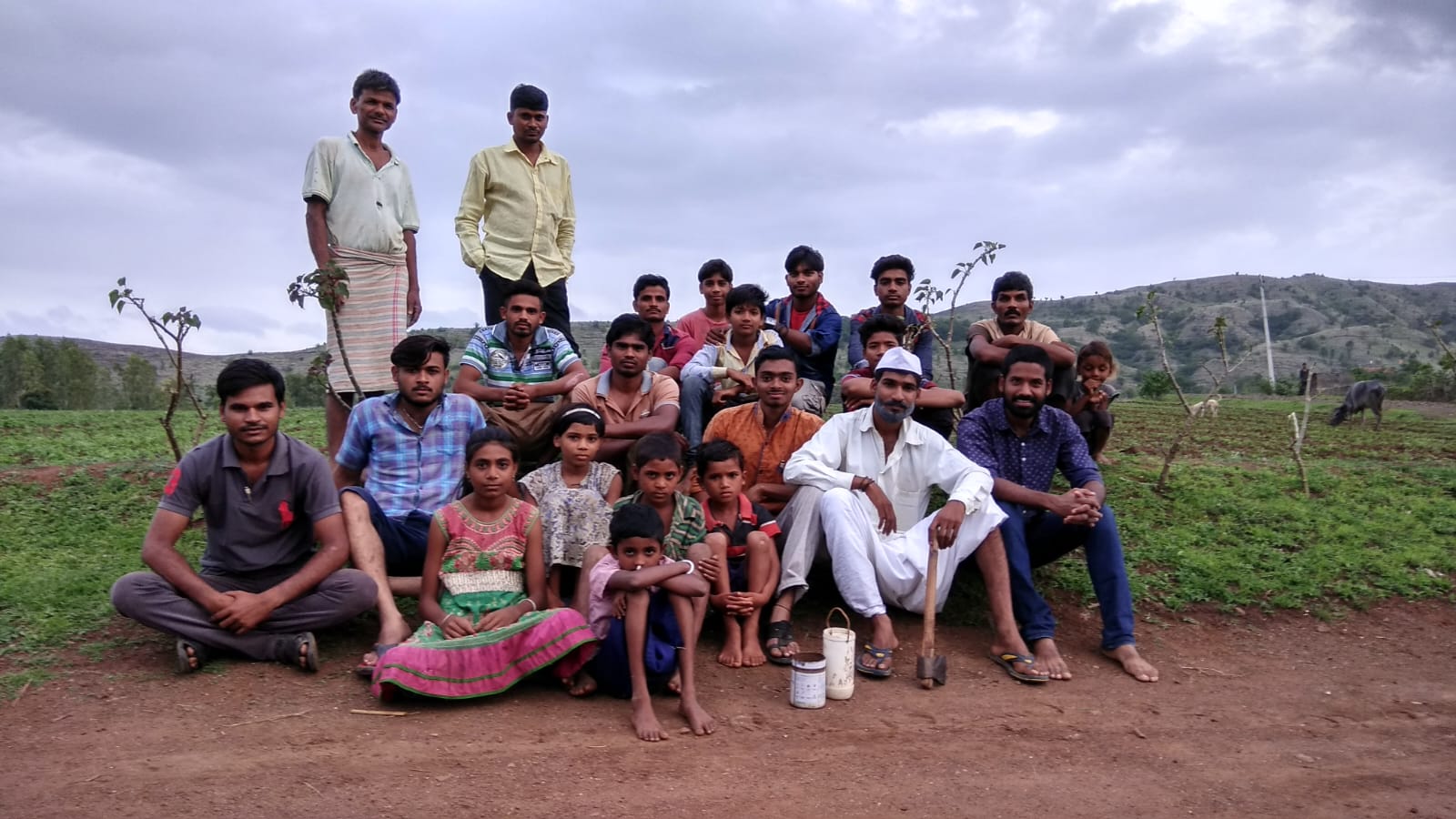
Their grassroots model is proof that when communities take control of their own narrative, they can bring about meaningful change. Now, the team is focused on combating fake news and misinformation in the region — educating people about the importance of accurate information and leadership roles within the Government.
They have shown that when the people from the community work for their own people, with deep understanding and empathy for the challenges they face, change is not just possible — it’s inevitable.
“We are a part of the system itself. What the community thinks, our team thinks the same way,” says Nitesh. “We also understand the social and cultural norms of the community very well, which helps us identify the issues that need attention and determine the best way to address them.”
Edited by Pranita Bhat, All image courtesy Adiwasi Janjagruti

No comments:
Post a Comment